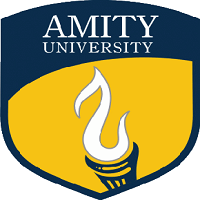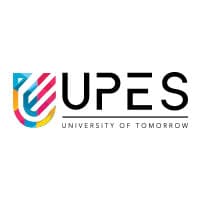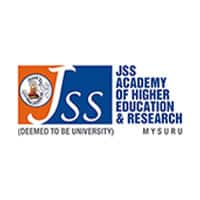VIT Chennai B.Sc. Admissions 2025
#10 in India by NIRF Ranking | Institution of Eminence by Govt. of India | Scholarships Available
BSc Statistics is an undergraduate degree programme with a duration of three years. It deals with quantitative data and its analyses using statistical methods. This bachelor's degree in Statistics equips candidates with the skills and knowledge of techniques of data analysis and valid interpretation of results.
Candidates must have mathematics as their major subject in 10+2 to be eligible for admission. BSc Statistics includes subjects such as Descriptive Statistics, Statistical Methods, Probability Distribution, Operation Research, Forecasting, Econometrics, and Biostatistics. The average course fee for the entire course is anywhere between Rs. 2,000 to Rs. 6.0 lakhs.
BSc Statistics graduates get the opportunity to work as Data Analysts, Statistical Analysts, Actuarial Analysts, Risk Analysts, Operations Research Analysts, Statisticians, and Research Scientists. Top recruiters for BSc Statistics graduates are ISI, National Sample Survey Office (NSSO), Infosys, Wipro, Genpact, Cognizant, Deloitte, KPMG, and EY.
| Particulars | Values |
|---|---|
Degree Name | BSc Statistics |
Degree Type | Undergraduate Degree |
Degree Duration | 3 years |
Eligibility Criteria | 10+2 Examinations Passed |
Admission Process | Entrance-based or merit-based |
Entrance Exams | CUET, ISI Admission Test |
Course Fees | Rs. 2,000 to Rs. 6.0 lakhs |
Job Profiles | Data Analyst, Statistical Analyst, Actuarial Analyst, Business Analyst, Market Research Analyst, Financial Analyst, Risk Analyst, Operations Research Analyst, Statistician, Research Scientist |
Top Recruiters | Indian Statistical Institute (ISI), National Sample Survey Office (NSSO), ISRO, TCS, Infosys, Wipro, Genpact, Cognizant, Deloitte, KPMG, EY |
Candidates to get admission in BSc Statistics have to fulfil certain eligibility criteria set by various universities and colleges. Below are the eligibility criteria for admission to the BSc Statistics degree programme, considered by most colleges and institutions in India.
Candidates must complete class 10+2 examinations from a recognised board of education.
They must have mathematics as the major subject in 10+2.
For some universities like Delhi University, candidates also have to qualify for a certain entrance examination to be eligible.
The BSc Statistics admission process is a simple procedure. Candidates have to follow certain steps to get admission to colleges and universities offering BSc Statistics. Below is the list of steps required for admission.
Candidates, as the first step in admission, have to ensure that they are eligible for BSc Statistics.
After that, candidates have to fill out the application form from the universities or colleges.
As per the colleges or universities, if an entrance exam is required, candidates are required to sit for the entrance exam.
After the entrance exam is done, the conducting body releases the results and the ranks of the students.
Colleges roll out the merit lists of eligible ranks
As per the ranks, candidates can apply to the colleges and finalise their admission by paying the final fees.
Certain universities require candidates to qualify for a specific entrance exam. Some entrance exams are university specific and some are national level. For admission to Delhi University, candidates need to qualify for the CUET, for Christ University, they need to pass Christ University specific tests. Below are the descriptions of some of the important entrance exams.
Exam Name | Level | Conducting Body | Exam Schedule |
|---|---|---|---|
National | NTA | ||
University | ISI | - |
BSc Statistics equips candidates with intellectual and interpersonal skills to help them succeed in future and higher education. Some of the skills required for BSc Statistics are:
Mathematical Skills
Statistical Knowledge
Data Analysis Skills
Critical Thinking
Problem-Solving Skills
Communication Skills
Attention to Detail
Computer Literacy
Time Management
Teamwork and Collaboration
Universities and colleges providing BSc Statistics have a comprehensive syllabus. The syllabus covers both theoretical and practical subjects. The overall syllabus provided by KJSSC Mumbai is divided into six semesters in three years and is compiled below.
Semester 1 | |
Descriptive Statistics-I | Statistical Methods- I |
Semester 2 | |
Descriptive Statistics - II | Statistical Methods - II |
Semester 3 | |
Probability Distribution–I | Theory of sampling |
Operation Research | Time Series Analysis and Forecasting |
Semester 4 | |
Probability and Sampling distributions | Analysis of variance and Design of experiments |
Project management and industrial statistics | Research Methodology |
Semester 5 | |
Probability theory | Probability Distribution |
Theory of Estimation | Demography and Vital Statistics |
Regression Analysis | Econometrics |
Operation research-II | Design of Experiments |
Statistical Computing using c- programming | - |
Semester 6 | |
Survival Analysis | Statistical Computing using R |
Testing of hypothesis | Stochastic Process |
Elements of actuarial science | Data Mining |
Biostatistics | Time series analysis |
Linear Model | - |
The fee structure for different colleges offering BSc Statistics varies. The fee structure depends on the level of the university, the location, the facilities available, and the pool of faculty. The average fee for BSc Statistics is around Rs. 25,300, however, it ranges from Rs. 2,000 to Rs. 6.0 lakhs, depending on the college choice.
BSc Statistics provides students with a bright scope. BSc Statistics provides opportunities for data analysis and interpretation in various industries. Students get to contribute in finance, healthcare, marketing, and government. BSc Statistics also provides candidates with the opportunity to do research projects in academia, government agencies, and research institutions. BSc Statistics also provides a scope of higher education.
BSc Statistics opens the door to wide career opportunities for students. Some of the job roles associated with a BSc in Statistics include the following.
Data Analyst: A Data Analyst is responsible for gathering information, cleaning data, and then analysing it to get insights. He or She uses statistical methods and softwares to get insights and aid in decision-making.
Statistical Analyst: A Statistical Analyst analyses the quantitative data using statistical techniques to interpret data. He or She is also responsible for performing hypothesis testing and creating statistical models for automation.
Actuarial Analyst: An Actuarial Analyst is responsible for assessing financial risks to help businesses make proper decisions. He or She works in the fields of insurance, pensions, and investments.
Business Analyst: A Business Analyst is responsible for analysing business financial statements to find problems in businesses and help them take corrective actions. He or She also helps businesses make strategic decisions so that they can increase their profitability.
Market Research Analyst: A Market Research Analyst is responsible for obtaining market data like consumer preferences, market trends, and competitors and analysing it to get insights. He or She helps businesses in making marketing strategies according to the insights.
Risk Analyst: A Risk Analyst is responsible for identifying and assessing potential risks that businesses may face. He or She develops risk management techniques to mitigate the risks.
Statistician: A Statistician is responsible for doing experiments and drawing conclusions and interpretations from the data. He or She helps in making decisions and predictions in various fields.
Research Scientist: A Research Scientist conducts research, experiments, and analyses to provide advanced knowledge in various fields. He or She uses statistical techniques on quantitative data to predict future advancements.
Academician: An Academician is responsible for teaching various subjects of statistics to the students. He or She can also conduct research and publish articles in academic journals.
Indian Statistical Institute (ISI)
National Sample Survey Office (NSSO)
Indian Space Research Organisation (ISRO)
Tata Consultancy Services (TCS)
Infosys
Wipro
Cognizant
Deloitte
KPMG
Ernst & Young (EY)
There are a lot of benefits that BSc Statistics provides to its students. BSc Statistics provides candidates with various skills and knowledge that help them work in different fields like finance, marketing, and healthcare.
Students are provided with promising career opportunities along with the opportunity to take part in higher education. Students after doing BSc Statistics can go for master's or even have the opportunity to work abroad.
The average salary depends on the organisation the graduate will work with, the location, the work experience, and the position of the graduate. The average expected salary varies in different organisations and positions.
Career Profiles | Average Salary |
|---|---|
Data Analyst | Rs. 6.4 LPA |
Statistical Analyst | Rs. 9.3 LPA |
Actuarial Analyst | Rs. 7.3 LPA |
Business Analyst | Rs. 9 LPA |
Market Research Analyst | RS. 4.2 LPA |
Risk Analyst | Rs. 21 LPA |
Statistician | Rs. 4.2 LPA |
Research Scientist | Rs. 8.4 LPA |
Academician | Rs. 9.9 LPA |
Source: AmbitionBox and Glassdoor
India has around 140 popular colleges and institutions that offer BSc Statistics. These colleges and institutions are known for their comprehensive education, their facilities, and their faculties. These colleges provide both theoretical and practical exposure to the students. Below is the list of the top 10 colleges according to NIRF that offer BSc Statistics in India.
Institutions | Average Fees |
|---|---|
Rs. 3,940 | |
Rs. 74,220 | |
- | |
- | |
Rs. 4,130 | |
Rs. 74,820 | |
Rs. 28,340 | |
Rs. 1,950 | |
Rs. 6,600 | |
Rs. 8,490 |
There are more than 80 private colleges and institutions in India that offer BSc Statistics to students. These colleges are known for their education facilities, course materials, and infrastructure. These colleges and institutions provide promising career placements to graduates.
Institutions | Average Fees |
|---|---|
- | |
- | |
Rs. 44,820 | |
- | |
- | |
Rs. 18,160 | |
- | |
- | |
Rs. 37,620 | |
Rs. 60,000 |
There are more than 50 government colleges and institutions that offer BSc Statistics in India. These colleges are known for their experienced faculty and career placements.
Institutions | Average Fees |
|---|---|
- | |
- | |
- | |
Rs. 5,010 | |
Rs. 3,460 | |
Rs. 4,160 | |
Rs. 38,740 | |
Rs. 12,240 | |
- | |
Rs. 23,100 |
BSc Statistics is a three-year undergraduate degree that offers candidates skills and knowledge related to research, analysis, and interpretation of quantitative data. For candidates who like to work with numbers and data and want to make a career in research and analysis, BSc Statistics is a good degree programme for them.
BSc Statistics is an undergraduate degree that focuses on statistics interpretation, probability, and quantitative analysis.
After completing BSc Statistics, candidates can work as a Data Analyst, Statistical Analyst, Actuarial Analyst, Business Analyst, Market Research Analyst, Financial Analyst, Operations Research Analyst, Statistician or Research Scientist.
The curriculum of BSc Statistics includes subjects such as Descriptive Statistics, Statistical Methods, Probability Distribution, Operation Research, Time Series Analysis and Forecasting, Econometrics, Biostatistics, and Testing of Hypotheses.
Skills like Mathematical Skills, Statistical Knowledge, Data Analysis Skills, Critical Thinking, Problem-Solving Skills, Communication Skills, and Attention to Detail are required for BSc Statistics.
The duration of BSc Statistics is three years further divided into six semesters.
Yes, candidates can pursue higher education like a Master's in Statistics after completing a BSc in Statistics.
have a strong chance of getting admission to B.Sc. Science programs at Mar Ivanios College, Thiruvananthapuram.
Key Points:
Admissions are merit-based.
93% is well above the typical cut-off.
Popular B.Sc. courses include Physics, Chemistry, Botany, Zoology, and Computer Science.
Application usually opens around May-June.
I can give you a general outline of the admission process based on the information available for JIET College of Nursing, Jodhpur (Rajasthan) , as it appears frequently in the search results. The process for other JIET colleges might be similar, but always check the specific college's official website for accurate details.
Here's a general way to get admission to a JIET BSc Nursing College:
1. Eligibility Criteria:
2. Application Process:
3. Selection Process:
4. Final Admission:
Since you did not pass Physics in your 12th exam, pursuing BSc Nursing may not be an option. However, you can explore other career paths such as BCA, Computer Science, Animation, Design, Hotel Management, or a diploma in various technical fields or business administration
To apply for B.Sc. Nursing, follow these steps
First, check your eligibility criteria; you are a student of PCB(Physics, Chemistry, Biology) in your higher education subjects. After that, your age should be 17 , not less than that .
After that choose the institution , where you want to apply and check for its entrance details , refer to Career360.com (//Career360.com) for any entrance related queries.
Register for it and start preparing , then give the exam after that if you pass the eligibilty criteria, you get shortlisted.
Hello there,
You can access AIIMS BSc Nursing previous year question papers from 2020 to 2024 in PDF format with expert solutions through the following resources:
Careers360
: They offer downloadable PDFs of AIIMS BSc Nursing question papers from 2020 to 2024, complete with solutions.
Careers360 Medicine
Testbook
: Offers a collection of solved AIIMS BSc Nursing questions with detailed explanations, which can be beneficial for practice.
(https://testbook.com/questions/aiims-bsc-nursing-questions--664b0622586c174d4f6e90a2?utm_source=chatgpt.com)
YouTube Playlist : For visual learners, this playlist contains videos discussing previous year question papers and solutions. (https://www.youtube.com/playlist?list=PL34JCRWW30yfJGgz-jgZAuCuifb32Lpiz&utm_source=chatgpt.com)
Practicing these papers will help you understand the exam pattern, question types, and difficulty level, thereby enhancing your preparation for the AIIMS BSc Nursing entrance exam.
I hope this answer helps you. If you have more queries, feel free to share your questions with us, and we will be happy to assist you.
Thank you, and I wish you all the best in your bright future.

Ranked amongst top 3% universities globally (QS Rankings)

Ranked #46 amongst Universities in India by NIRF | 1900+ Students Placed | 94% Placement | 633+ Recruiters

NAAC A+ Accredited| Ranked #24 in University Category by NIRF | Applications open for multiple UG & PG Programs

Industry-Relevant Curriculum tailored for careers in Science, Research, and Technology.
NAAC A++ Accredited | NIRF 2024 ranked 42nd among Indian universities| 150+ Multidisciplinary Programs | Centre for Career Enhancement
Ranked #1 Among all Private Indian Universities in QS Asia Rankings 2025 | Scholarships worth 210 CR